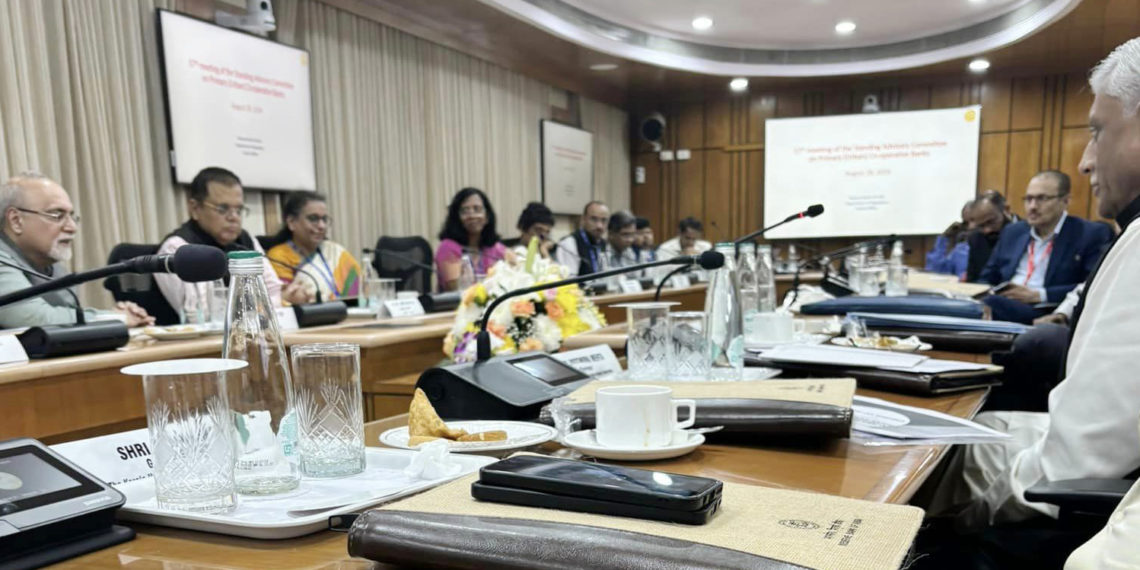The Reserve Bank of India organized the 37th Standing Advisory Committee meeting in Mumbai on Wednesday after a gap of one year, during which almost all the major issues plaguing the sector came up for discussion.
These included aligning regulatory norms for T3 and T4 UCBs with those of commercial banks, resumption of licenses for new UCBs, Priority Sector Lending (PSL) targets, and loans to directors, among other things.
The meeting was attended by the who’s who of the urban banking sector, including NAFCUB President Laxmi Das, Jyotindra Mehta, Saraswat Bank Chairman Gautam Thakur, Maharashtra UCB Federation Chairman Ajay Barmecha, Rajasthan UCB Federation Chairman Mohan Parashar, Pune Janata Sahakari Bank Chairman Ravindra Hejib, as well as representatives from West Bengal and Kerala UCB federations, among others.
The presence from the RBI and government side was also strong, with RBI Deputy Governor M. Rajeshwar Rao presiding over the meeting. Several other RBI officials were present, and the meeting also saw the participation of newly appointed Central Registrar of Cooperative Societies (CRCS) Rabindra Kumar Agarwal and Scenta Joy, the nodal officer appointed for all policy-related issues concerning UCBs.
Speaking to Indian Cooperative, NAFCUB President Laxmi Das said, “It was a fruitful meeting. Numerous issues pertaining to the cooperative sector were discussed in depth. The Deputy Governor and RBI officials listened to our concerns with patience and showed keen interest in addressing them. We are optimistic about receiving positive news soon,” he noted.
“The discussions covered a wide range of topics, including small ticket loans, priority sector targets, revision of the housing loan limit, entry point norms for new banks, norms for conversion of credit societies into urban cooperative banks, relaxation in branch openings, and more,” he added.
A key demand raised during the meeting was the urgent need to revisit the Priority Sector Lending (PSL) targets and lower them to 40 percent, as applicable to commercial banks.
Discussions also focused on the increasing penalties imposed by the RBI on UCBs. Cooperators expressed concerns that no UCB might qualify as Financially Sound and Well Managed (FSWM) in the coming years if the current penalty regime continues. They requested that penalties be categorized as major or minor, with only major violations affecting FSWM status.
Among the important issues discussed was the existing mandatory norm for UCBs, which requires that at least 50% of a bank’s loan portfolio comprises loans not exceeding Rs 25 lakh or 0.2% of their Tier I capital, whichever is higher, with a cap of Rs 1 crore per borrower/party.
The cooperative banking sector representatives called for this threshold to be revised, proposing that at least 50% of total advances should comprise loans up to Rs 1 crore or 0.5% of their Tier I capital, whichever is higher. They argued that this change would allow banks with a strong capital base to better serve their existing customers.
Another critical point raised was regarding loans to UCB directors. It was demanded that UCB directors should receive the same treatment as directors of commercial banks.
During the meeting, cooperators emphasized that instead of canceling licenses and closing down UCBs, the RBI should avoid closures in the interest of depositors.
It was also discussed that the RBI should announce the resumption of licensing for new UCBs and prescribe entry point norms to achieve the Prime Minister’s “Sahakar se Samridhi” vision.
Additionally, it was suggested that UCBs with deposits between Rs 500 crore and Rs 1,000 crore be considered for inclusion in the Second Schedule of the RBI Act.
A discussion also took place on increasing the permissible number of nominal members beyond the current 20% limit, especially since UCBs are increasingly providing loans to Self-Help Groups (SHGs) and Joint Liability Groups (JLGs), whose members often take nominal memberships. Alternatively, SHG and JLG members could be excluded from the 20% cap altogether.





















































